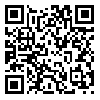Volume 64, Issue 12 (6 2006)
Tehran Univ Med J 2006, 64(12): 9-16 |
Back to browse issues page
Download citation:
BibTeX | RIS | EndNote | Medlars | ProCite | Reference Manager | RefWorks
Send citation to:



BibTeX | RIS | EndNote | Medlars | ProCite | Reference Manager | RefWorks
Send citation to:
Hamid N. The relationship between stress and immune system: a study in 320 social manager in Khoozestan. Tehran Univ Med J 2006; 64 (12) :9-16
URL: http://tumj.tums.ac.ir/article-1-854-en.html
URL: http://tumj.tums.ac.ir/article-1-854-en.html
Abstract: (10896 Views)
Background: Job stressors in managers are progressively affecting and destroying their immune systems. The relationship between hardiness, stress and immune system is important for mental health. This study was designed to determine the resources in managers against stress, resources herein designated as “hardiness” and “social support". Also in this research, the correlation between hardiness, defined collectively as feelings of challenge, commitment and control, as a resource against stress and the immune system of high school managers in Khozestan Province were studied.
Methods: The study sample was comprised of 340 managers (male and female), selected by the cluster sampling method. Each subject completed the personal view survey scale and social support questionnaire. Then the individuals were divided into four groups (n= 35 in each group) of high and low hardiness and social support as follows: high hardiness / high social support, high hardiness / low social support, low hardiness / high social support and low hardiness / low social support. Subjects who suffered from disorders that affect the immune system were excluded. The number of T-helper cells (CD4), T-suppressor cytotoxic cells (CD8), natural killer cells (CD56+ CD16), complement system (C3, C4, CH50), immunoglobulin M and G (IgM and IgG), cortisol hormone, eosinophils, neutrophils and lymphocytes were measured for each subject.
Results: The results revealed that, there was a significant positive correlation between hardiness and CD4, CD4/CD8, CD56, CD16, CH50, IgM and neutrophil levels. Also, there was a significant negative correlation between hardiness and CD8, cortisol and eosinophil levels. There was a significant difference between the four groups of in CD4, CD8, CD4/CD8, cortisol, C3, C4, CH50 and lymphocyte levels. Also, there was a significant positive correlation between social support and CD4, CD4/CD8, CD56, CD16, CH50, IgM, C3 and neutrophil levels.
Conclusions: The results revealed that the performance of the immune system in managers with high hardiness and high social support is significantly better than that of managers with low hardiness and low social support. Furthermore, high hardiness and high social support act as resources and moderating factors against stress.
Methods: The study sample was comprised of 340 managers (male and female), selected by the cluster sampling method. Each subject completed the personal view survey scale and social support questionnaire. Then the individuals were divided into four groups (n= 35 in each group) of high and low hardiness and social support as follows: high hardiness / high social support, high hardiness / low social support, low hardiness / high social support and low hardiness / low social support. Subjects who suffered from disorders that affect the immune system were excluded. The number of T-helper cells (CD4), T-suppressor cytotoxic cells (CD8), natural killer cells (CD56+ CD16), complement system (C3, C4, CH50), immunoglobulin M and G (IgM and IgG), cortisol hormone, eosinophils, neutrophils and lymphocytes were measured for each subject.
Results: The results revealed that, there was a significant positive correlation between hardiness and CD4, CD4/CD8, CD56, CD16, CH50, IgM and neutrophil levels. Also, there was a significant negative correlation between hardiness and CD8, cortisol and eosinophil levels. There was a significant difference between the four groups of in CD4, CD8, CD4/CD8, cortisol, C3, C4, CH50 and lymphocyte levels. Also, there was a significant positive correlation between social support and CD4, CD4/CD8, CD56, CD16, CH50, IgM, C3 and neutrophil levels.
Conclusions: The results revealed that the performance of the immune system in managers with high hardiness and high social support is significantly better than that of managers with low hardiness and low social support. Furthermore, high hardiness and high social support act as resources and moderating factors against stress.
Keywords: Immune system; T-Helper cells (CD4); T-suppressor cytotoxic cells (CD8); Immunoglobulin; Cortisol
| Rights and permissions | |
 |
This work is licensed under a Creative Commons Attribution-NonCommercial 4.0 International License. |





